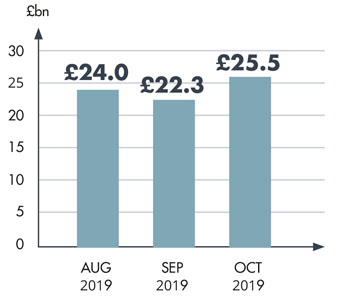A CONSERVATIVE MAJORITY – WHAT NEXT?
According to Knight Frank, some certainty has returned to the property market following the general election result. Their opinion is that there will be growth in both property demand and supply, as those who were holding off acting in the midst of political uncertainty decide to take the plunge.
Knight Frank also believe there could be a shortage in private rental properties, particularly in the prime London market, with landlords taking advantage of improved market conditions to put their properties up for sale instead.
There is also the impending Budget, expected in February 2020, to take into account. The threat of proposed tax changes could prompt prospective buyers to act before these pass into law.
First-time buyers will be a key policy focus for the new government, having said they will refocus efforts on home ownership, particularly for first-time buyers. Although the manifesto reiterated the Help to Buy Equity Loan Scheme would be scaled back in 2021, subsequently ending in 2023, it pledged a review of methods to support home ownership following its completion.
CASH PURCHASES HIT RECORD LOW
Decreasing numbers of investors and downsizers have meant cash purchases of property have fallen to a record low, according to the latest Land Registry data. At just 28%, that’s the lowest proportion of sales since records began.
Purchases without a mortgage typically run above 30%, with a peak of 36% recorded in 2009. In March that year, prices hit their post-credit-crunch low, making them appear more affordable for those with the means to buy. One decade later, though, house prices are over 50% higher and new tax rules mean, for investors and overseas buyers, associated expenses have risen by even more.
Every region of the country saw a decline in cash buyers, with London reporting the lowest proportion of cash purchases in the survey. The attraction of the South West appears as strong as ever, where cash purchases were the highest in the UK, at 34%.
NORTHERN CITIES LEAD THE WAY ON HOUSE PRICES
Houses in the northern cities of the country may cost less, on average, than those in the South East, but prices are rising at a faster rate.
According to the latest Zoopla Cities House Price Index (to end October 19), Edinburgh, Manchester, Glasgow, Liverpool, Leeds, Nottingham, Newcastle and Birmingham all saw average rises of at least double that of London. Leicester topped the list with 4.7% growth, while Bournemouth was the only southern city to muster anything above 2%.
One city to buck the rising trend was Aberdeen, where the fallout from lower oil prices continues to hit. Here, house prices fell 5.9% compared with the same time last year. |

